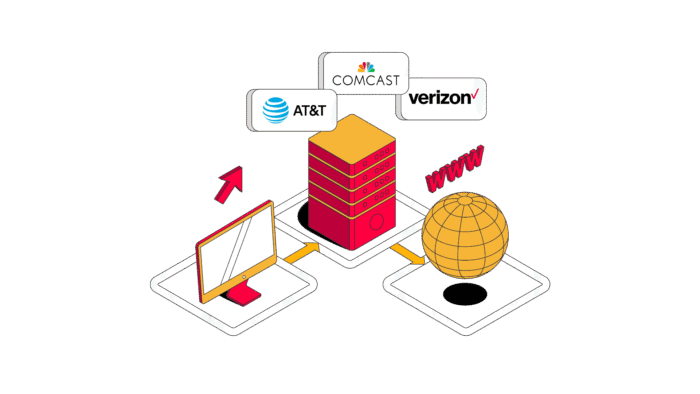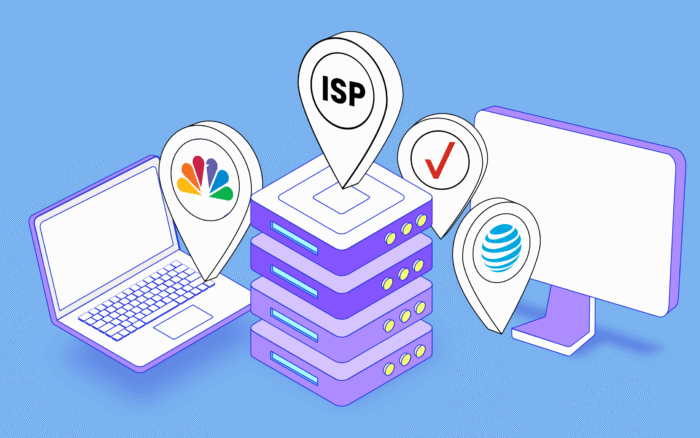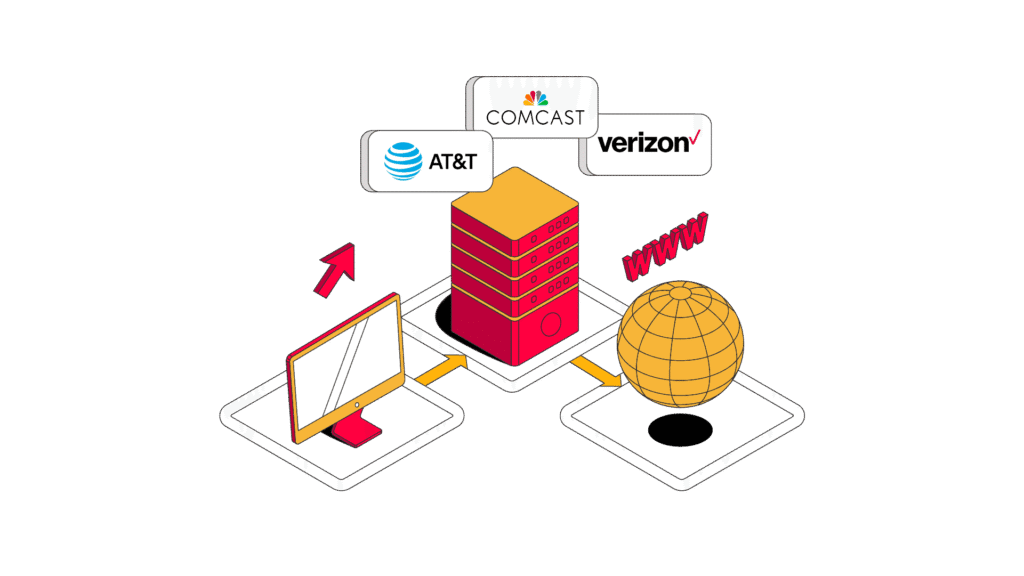In today’s digital economy, organizations rely on large-scale data access, automation, and secure browsing to remain competitive. ISP proxies match these objectives by providing legitimate IP addresses with data center-like speed and dependability.
This combination allows organizations to function well across several web channels without interruption. This blog discusses how businesses can boost their ISP proxy capabilities to enable secure data access, increase performance, and scale operations across digital environments.

What Are ISP proxies?
An ISP proxy uses a home IP address issued by an Internet Service Provider. But the hosting occurs on a server in a data center. This hybrid solution combines the validity of home IP addresses with the speed and reliability of standard datacenter proxies.
As a result, websites recognize these connections as legitimate users, decreasing the appearance of blocks or CAPTCHAs. With them, businesses gain the capacity to grow activities that demand a high volume of continuous online traffic.
Why Do Businesses Use Them?
Companies from several industries use ISP proxies to collect data, administer different social media accounts, confirm ads, and conduct localized testing.
Because ISP proxies resemble genuine user behavior while maintaining high performance, they are suitable for digital jobs that need both credibility and speed. Unlike other solutions, these tools are more stable, making them suited for continuous operations.
Aligning Proxies and Business Goals
To reap the benefits of ISP proxies, firms must align proxy usage with their specific requirements. A marketing team can use this technology to get competitive pricing or ad data without disclosing its business identity. Likewise, a cybersecurity team can replicate online traffic to test vulnerabilities or discover threats.
Proxies also come in handy in e-commerce platforms to track product listings, user reviews, and regional market fluctuations. Each use case necessitates proxies with certain attributes such as location, speed, and session duration.
Importance of Task Matching
Selecting proxies depending on their intended purpose reduces inefficiencies and disturbances. To escape rate constraints, web scraping, for example, requires rotating IP addresses, whereas account management requires sticky sessions to guarantee continuity. Businesses must define their objectives and configure proxies to achieve consistent outcomes.
Enhancing Capabilities Through Geo-Targeting
Geo-targeted ISP proxies enable businesses to access content as if in a certain country or city. This capability is critical for companies with international operations or region-specific marketing plans.
For example, a corporation introducing a new product in Germany can use a German ISP proxy to see how the product appears to local visitors, test the website’s operation, and observe rival behavior in that region.
Improving Regional Accuracy
Without geo-targeting, firms risk misinterpreting regional variances in content availability, search engine results, and advertising.
ISP proxies with location control enable organizations to generate precise insights, test campaigns effectively, and maintain worldwide consistency. Using the appropriate geographical IP address decreases the likelihood of skewed or incomplete data.
Efficient Proxy Management
Manual proxy management is unsuitable for large-scale organizations. Businesses gain from employing proxy management tools that automate configuration, performance monitoring, and IP rotation. These programs ease daily tasks and reduce human mistakes.

Effective proxy management tools have the following key features:
- Automatic IP rotation and session control
- Real-time performance monitoring and error logging
- Integration with web scraping and automation software
- Options for customizing the user agent and header
Monitoring Key Performance Metrics
Tracking indicators such as request success rate, connection speed, and block frequency enable teams to fine-tune proxy use. If a proxy IP starts generating CAPTCHAs on a certain website, the system can replace it in real-time.
This versatility guarantees that operations continue even when external conditions change. A well-managed proxy system increases uptime, improves data quality, and reduces operational risks.
Avoiding Detection and Staying Compliant
ISP proxies reduce the likelihood of detection, although poor implementation might still result in bans or blacklisting. Businesses must use ethical proxies to preserve access and avoid legal ramifications.
The recommended practices include:
- Limiting the frequency and volume of requests per IP
- Respecting the target site’s terms of use and robots.txt files
- Rotating IP addresses and user agents
- Preventing the scraping of personal or sensitive information
Choosing a Reliable Proxy Provider
Choosing an ISP proxy supplier that is reliable and transparent is critical to success. Key considerations include the size and quality of the IP pool, server uptime, customer support, and simplicity of integration. Businesses should also assess the provider’s pricing model to verify it is appropriate for their usage volume and frequency.
Recommended Solution
IPRoyal proxies provide robust ISP proxy solutions designed for professional environments. With a vast pool of confirmed IPs, quick network performance, and clear usage restrictions, IPRoyal enables organizations to operate proxies at scale without hassle. Choosing the right supplier lowers technical obstacles and offers teams confidence in their proxy-based workflows.
Conclusion
Optimizing ISP proxy use enables enterprises to collect data, preserve access to global content, and ensure secure automation. Companies create a solid basis for digital operations by selecting the right tools that align with their aims, managing them, and adhering to legal regulations.
ISP proxies help businesses expand, improve data-driven strategies, and provide a smooth connection with online platforms.

